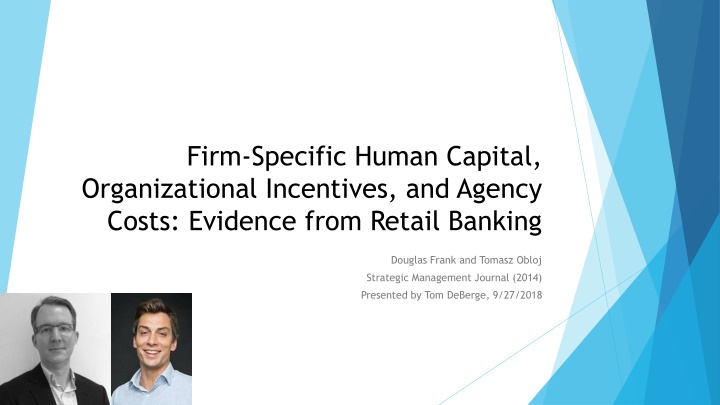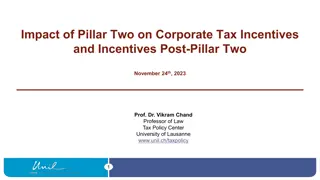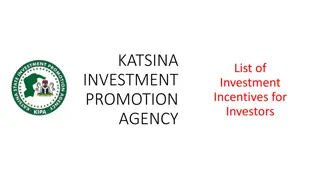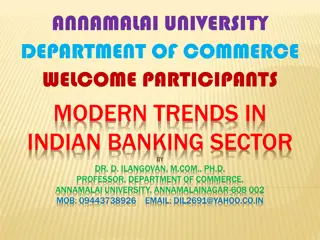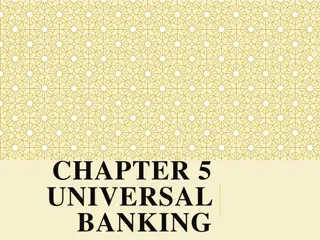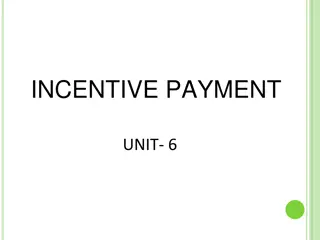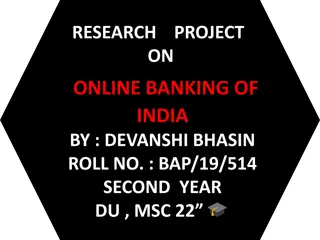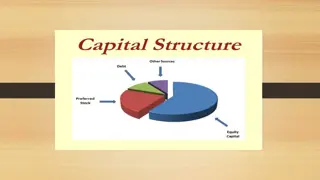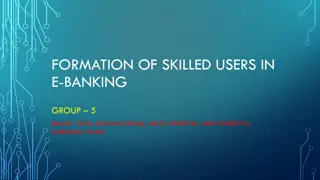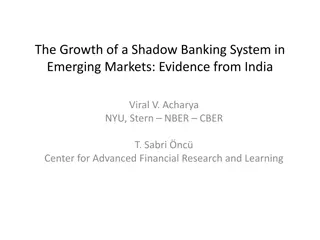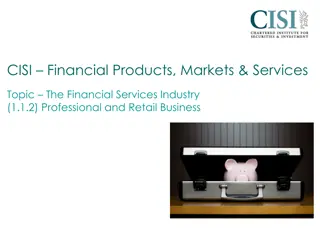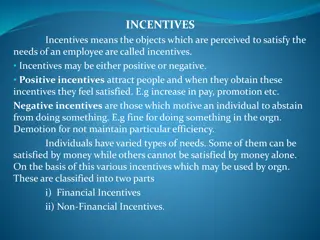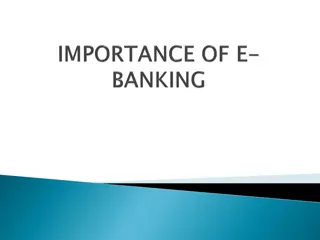Firm-Specific Human Capital and Organizational Incentives in Retail Banking
This study examines the impacts of firm-specific human capital (FSHC) on organizational performance and agency costs in the retail banking industry. Findings suggest a positive association between FSHC and productivity, but also highlight potential risks related to incentive gaming and adverse learning. The research sheds light on the complex relationship between specialized knowledge, incentives, and firm outcomes.
Download Presentation

Please find below an Image/Link to download the presentation.
The content on the website is provided AS IS for your information and personal use only. It may not be sold, licensed, or shared on other websites without obtaining consent from the author.If you encounter any issues during the download, it is possible that the publisher has removed the file from their server.
You are allowed to download the files provided on this website for personal or commercial use, subject to the condition that they are used lawfully. All files are the property of their respective owners.
The content on the website is provided AS IS for your information and personal use only. It may not be sold, licensed, or shared on other websites without obtaining consent from the author.
E N D
Presentation Transcript
Firm-Specific Human Capital, Organizational Incentives, and Agency Costs: Evidence from Retail Banking Douglas Frank and Tomasz Obloj Strategic Management Journal (2014) Presented by Tom DeBerge, 9/27/2018
Objectives To explore the conflicting implications of firm-specific human capital (FSHC) on firm performance, by considering the agency costs associated with high-powered incentives and adverse learning by those with high FSHC. Extant literature identifies a complementary relationship between FSHC and performance Anecdotal evidence suggests otherwise (e.g., Enron scandal) The proposed trade-off: specialized knowledge and skills that can generate profits for the firm, thereby leading to increased incentives, can also be exploited by the very same knowledge and skills.
Theory and Hypotheses FSHC and Productivity (well-established in the literature) H1: High firm-specific human capital will be associated with greater productivity. FSHC and Agency Costs (contradictory findings in the literature) H2: High firm-specific human capital will be associated with an increased incidence of incentive gaming. FSHC and Firm Performance (unfounded in literature > competing hypotheses) H3a: The net effect of high firm-specific human capital on organizational performance will be positive. H3b: The net effect of high firm-specific human capital on organizational performance will be negative. FSHC and Adverse Learning (extension of H2, counter to previous literature) H4: Agency losses will increase at a faster rate for high levels of firm-specific human capital.
Method and Context Retail Banking Industry Information Asymmetry > Monitoring Problem > Relative autonomy of managers over certain decisions ..an imperfectly informed principal facing boundedly rational agents (1298). Firm-Specific Human Capital (FSHC) Measured by the manager s ability to predict sales targets set by executives Assumes insights into the specific processes of the bank Loans Incentives tied to loan sales Loan terms are often subject to managerial discretion
Results: H1 Supported This result supports the literature and also lends credibility to the measure of FSHC.
Results: H2 Supported I know at all times where I stand with regard to the sales target. If I m behind, I do all I can to catch up. If I m ahead I take it easy. - Bank Manager
Results: Not H3a, but H3b supported Profit losses based on two benchmarks Fourth-Week Effect Benchmark Monopoly Pricing Benchmark
Results: H4 supported They [managers] all try to game the system. Fortunately it takes them time to figure out how to do it. In fact, as soon as I realize that they have figured out how to game, I start to think about the new structure of incentives. Sales Director
Discussion and Implications Results highlight a previously unrecognized trade-off between human capital and incentives; Complementarity not universal. Results offer a new answer to the question about why all employees do not behave opportunistically > They don t know how (yet). Results imply that even initially optimal contracts may become sub- optimal over time because of adverse learning Several possible remedies may be able to restructure incentives, increase monitoring, or introduce other safeguards
Questions What about dis-incentives? Do the authors consider that adverse learning may be more a function of learning that gaming goes unpunished? ( They [managers] all try to game the system Of course we give discounts. Everybody does. ) The authors emphasize the context-specific nature of their empirical work. Do we see evidence (even anecdotal) in contexts familiar to us?
